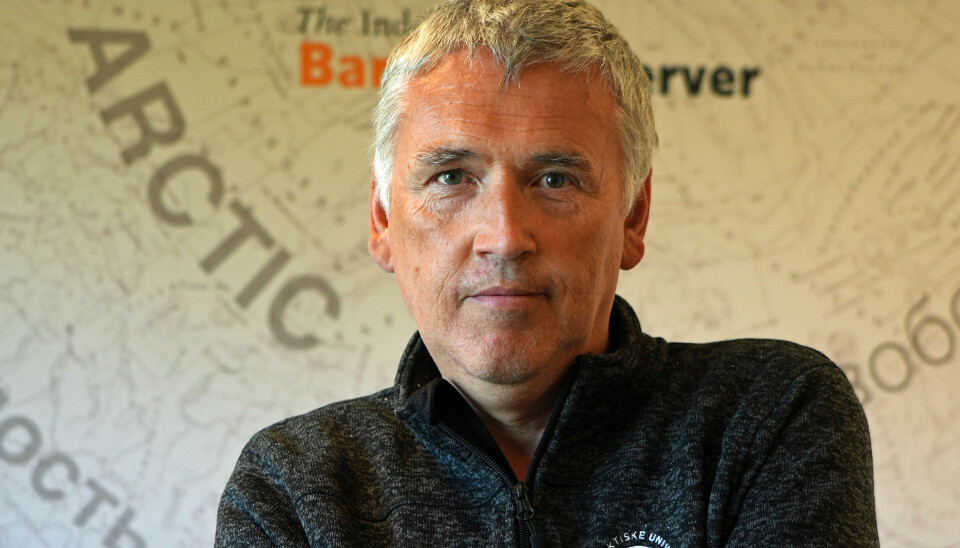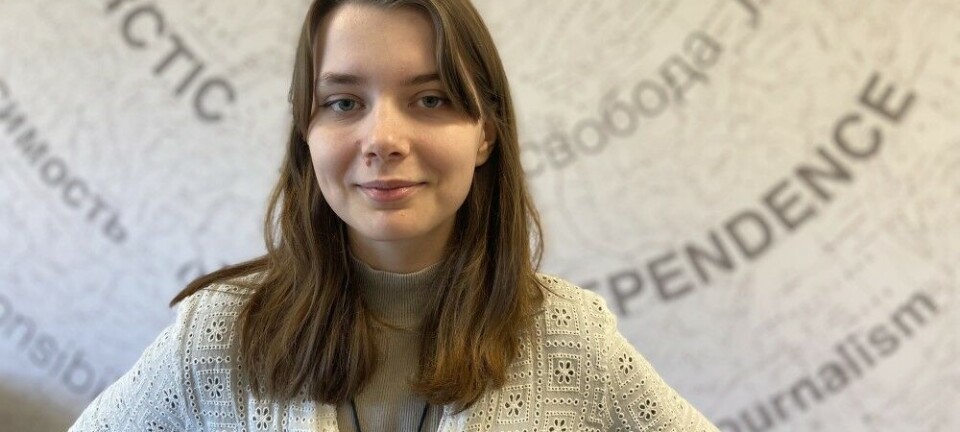OPINION

This is why we take the Prosecutor-General of Russia to court
The Barents Observer is not afraid of Putin. It is Putin and his allies who are terrified of independent media. Because uncensored journalism promotes a free exchange of views, ensuring accountability, transparency, and truth. These values are enshrined in the Russian Constitution and what we will fight for when meeting the Kremlin’s powerbase in court on July 24th.
In February the Prosecutor General's Office declared the Barents Observer an “undesirable organization”, thereby criminalizing our journalism and any associated activities we do in Russia or together with Russian citizens abroad.
The decision is part of a broader effort to silence media, civil society and others who want Russia to be an informed society.
The Prosecutor General argues that we publish articles “aimed at stimulating protests actions among the population in north Russian regions, tightening anti-Russian sanctions [and] boosting NATO’s military presence along our borders.” [Статьи направлены на стимулирование протестных настроений среди населения северных регионов России, ужесточение антироссийских санкций, необходимость наращивания военного присутствия НАТО у наших границ.]
Never did we know that our journalism had such an impact.
Russia’s authoritarian regime is a far cry from a rule-of-law system. On paper, however, the laws grant us the ability to challenge right from wrong. Justice from injustice. Legal from illegal.
From a juridical point of view, the judge in the Tverskoy District Court in Moscow has what at a first glance may seem to be an easy case.
Article 29 in the Russian Constitution is clear and straightforward. It says “everyone shall be guaranteed the freedom of ideas and speech.” The Article further points out that “Everyone shall have the right to freely look for, receive, transmit, produce and distribute information by any legal way.”
The final sentence is our most beloved: “The freedom of mass communication shall be guaranteed. Censorship shall be banned.”
So who are the criminals here; the Barents Observer or those attempting to stop our journalism?
We will argue in court that the Prosecutor General's listing of the Barents Observer as an "undesirable organization" violates our rights granted in the Constitution. Therefore, the listing should be reversed.
The question for the judge will be to what extent does the state have the right to interfere in the activities of the independent media, to ban their journalism in Russia under the pretext of security.
To help us appeal the repressive decision in court we have teamed up with Pervy Otdel [which translates as Department One], an independent legal group. It was this team of lawyers that helped us when we in February won the case in the European Court of Human Rights against Russia's censorship agency Roskomnadzor which since 2019 has blocked the Barents Observer on the internet for readers in Russia.
It might seem rather absurd, but even our helpers in Pervy Otdel are targeted by the state's repressive capabilities. Assisting a journalist in a previous FSB initiated case led to criminal prosecution against one of the lawyers. Others are listed as "foreign agents".
Today, the lawyers live and work in exile. Just like our Russian journalists here in Kirkenes. We are, however, still able to defend our case in Moscow.
Ever since the FSB requested our shutdown in 2014, we have only become stronger. Since we were blocked on the internet, we have only become better at outsmarting the censorship technologies.
And we’re certainly not undesirable if you ask our readers in Russia.
After the full-scale illegal and bestial war of choice against Ukraine in 2022, traffic and engagement on Barents Observer platforms — web, podcast, social media, YouTube, newsletters, and republications by others — grew significantly.
In our small newsroom, far inside the Arctic Circle, we take the massive clampdown targeting us for more than a decade as a clear sign that the Kremlin's repressive authorities know that we are doing a good job.
Journalism is no crime; the crime is stopping free media and freedom of expression.
That said, we are of course not naive. In the Tverskoy District Court the Prosecutor General's Office has teamed up with Russia's power structures; the Ministry of Justice and the Ministry of Foreign Affairs.
The latter is noteworthy because it implies that Putin's diplomats in Norway, that is with the Embassy in Oslo or the Consulate General in Kirkenes or Barentsburg, are engaged in the process against the Barents Observer. It is a serious matter when the repressive Kremlin regime interfere into journalism based and published in another country.
The content of the documents from the Ministry of Foreign Affairs brought to the case against the Barents Observer remains unknown to us. When the first hearing took place earlier in July, the court was held behind closed doors. That is illegal and our lawyers have filed motions to open the court.
If Russia's Prosecutor General ever believed the Barents Observer is an underdog, I can assure that we are stronger than ever.
Ultimately, we might consider bringing the case Barents Observer vs. Prosecutor General to the Constitutional Court of Russia.
Our team of Norwegian and exile-Russian journalists have a desire to provide independent news reporting about the Russian north, whether Putin or any of his allies like it or not.
Being silenced has never been an alternative. Putin is afraid of journalism. The Barents Observer promises to give the dictator more of what he fears most.

















